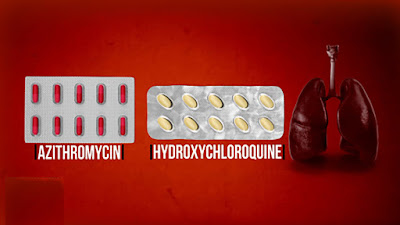CORONAVIRUS PANDEMIC UPDATE: A NEW FRENCH STUDY OF HYRDOXYCHLOROQUINE PLUS AZITHROMYCIN SHOWS PROMISE
Last Friday, French researchers led by Prof. Didier Raoult published results of their new study that examined the efficacy of hydroxychloroquine in combination with azithromycin in the treatment of COVID-19. Unlike the previous small study of 36 patients, the new observation study has a larger sample size of 80 COVID-19 patients.
This non-randomized, uncontrolled, and non-comparative group study shows that hydroxychloroquine in combination with azithromycin is effective in the treatment of COVID-19 and also has the potential to limit the contagiousness of the virus.
STUDY TITLE: Hydroxychloroquine-Azithromycin and COVID-1
AUTHORS: Philippe Gautret, Jean-Christophe Lagier, Philippe Parola, Van Thuan Hoang, Line Meddeb, Jacques Sevestre, Morgane Mailhe, Barbara Doudier, Camille Aubry, Sophie Amrane, Piseth Seng, Marie Hocquart, Julie Finance, Vera Esteves Vieira, Hervé Tissot Dupont, Stéphane Honoré, Andreas Stein, Matthieu Million, Philippe Colson, Bernard La Scola, Véronique Veit, Alexis Jacquier, Jean-Claude Deharo, Michel Drancourt, Pierre Edouard Fournier, Jean-Marc Rolain, Philippe Brouqui, Didier Raoult
SAMPLE SIZE: 80 COVID-19 patients
STUDY DESIGN: Observational, Uncontrolled, Non-Randomized, No Comparative Group Study
OBJECTIVE: Find an effective treatment to cure COVID-19 patients and to decrease the virus carriage duration.
PROCEDURE: Patients with no contraindications were offered a combination of 200 mg of oral hydroxychloroquine sulfate, three times per day for ten days combined with azithromycin (500mg on Day 1 followed by 250mg per day for the next four days).
For patients with pneumonia, a broad-spectrum antibiotic (Ceftriaxone) was added to hydroxychloroquine and azithromycin.
Twelve-lead electrocardiograms (ECG) were performed on each patient before treatment and two days after treatment began. All ECGs were reviewed by senior cardiologists.
Symptomatic treatments, including oxygen, were added when needed.
RESULTS: In 80 in-patients receiving a combination of hydroxychloroquine and azithromycin, the team found clinical improvements in all but one 86 year old patient who died, and one 74-year old patient still in intensive care unit.
DISCUSSION: In addition to its direct therapeutic role, the combination of hydroxychloroquine and azithromycin can play a role in controlling the disease epidemic by limiting the duration of virus shedding, which can last for several weeks in the absence of specific treatment.
CONCLUSION: The study confirms the efficacy of hydroxychloroquine associated with azithromycin in the treatment of COVID-19 and its potential effectiveness in the early impairment of contagiousness.



Comments
Post a Comment